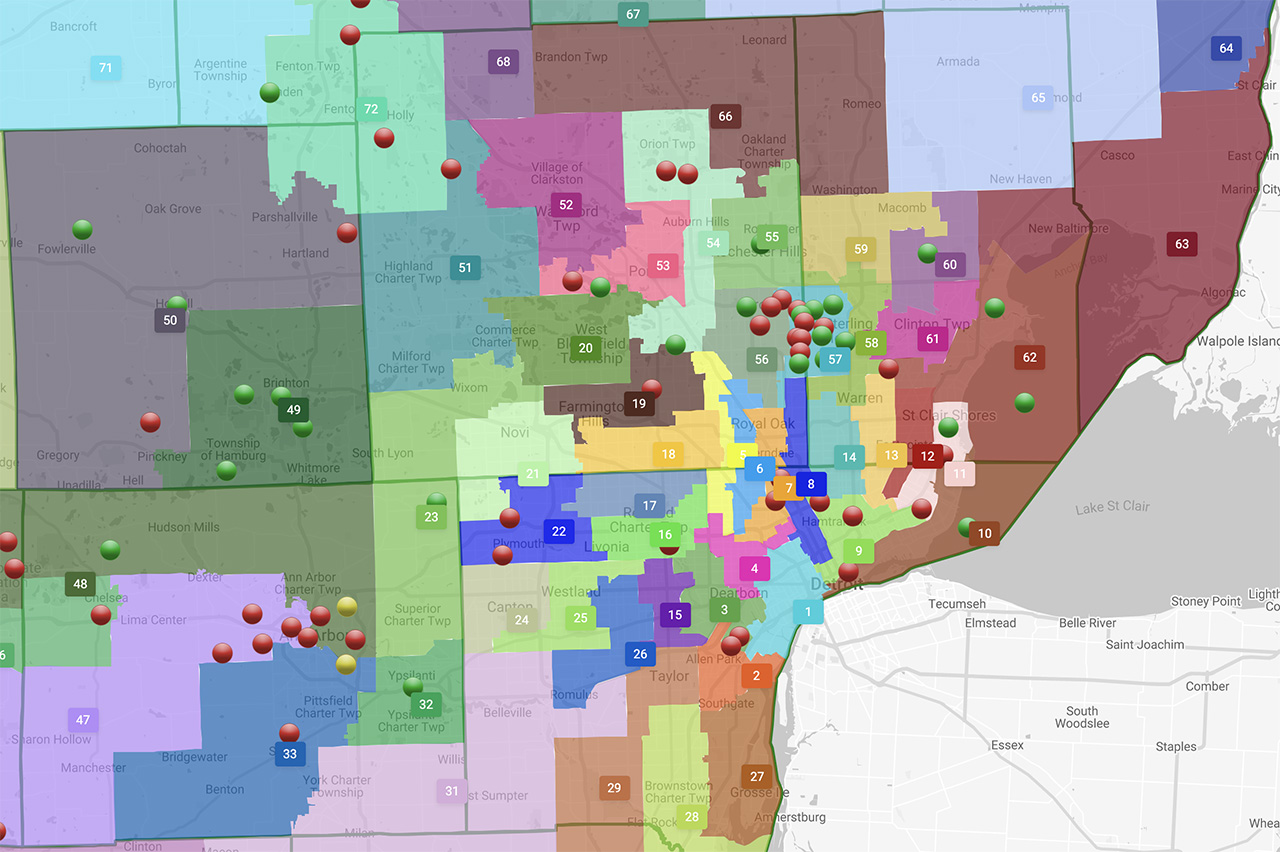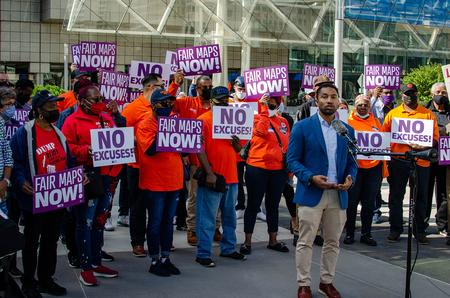There Are Many Ways to Redistrict Michigan: ‘This is Not Like a Recipe For Soup’
Michigan State professor and redistricting expert Jon Eguia says the proposed maps and process are an improvement but not perfect.

The Michigan Independent Citizens Redistricting Commission (MICRC) must follow specific guidelines and directives in completing its task.
One of the biggest hurdles is threading the needle of adequate representation of minorities.
Redistricting expert and Michigan State University economics professor Jon Eguia was one of the authors of an analysis looking at the maps put forth by the state’s redistricting commission.
“Aside from percentages, you’re also trying to respect the communities, to draw districts that more or less reflect an actual community of people living there.” –Jon Eguia, Michigan State University
He says satisfying the Voting Rights Act, while keeping communities of interest together is difficult. Mapmakers need to find a “Goldilocks” middle ground between two opposing ways that hurt minorities: “packing” and “cracking.” Packing is when many minority voters are placed in the same district so they win that district by a landslide while at the same time they’re taken out of nearby districts, minimizing their political influence, Eguia explains.
On the opposite end of packing is cracking, which disperses minority voters to many different districts where there is no majority to carry the district, Eguia says.
“This is not like a recipe for a soup, these are people and communities so aside from percentages you’re also trying to respect the communities, to draw districts that more or less reflect an actual community of people living there,” he says.
Listen: Michigan State professor Jon Eguia on the improvements and flaws in the new redistricting process.
Russ McNamara, WDET News: Activists and politicians in Detroit came out and expressed a concern that there were too many districts where there was less than 50% Black population in that district. Is 50% a necessary threshold to ensure African Americans are adequately represented in the state?

Jon Eguia, Michigan State University professor and redistricting expert: No, 50% is not a necessary threshold, the Commission had some sense behind what he was doing, he was not crazy, you do not need 50% to be represented. Because if you are 45%, we’re not a totally racially polarized society. There are some non-Black voters who also like what Black voters want, so is 47% Black, they will find 3% of allies in other communities that will vote with them, and the community will win. So 50% is not required.
Keeping together communities of interest with some thing that has been a point of emphasis for many, how does that conflict with things like the VRA drawing districts in around Detroit?
So there are two conflicting tensions. One is that if you keep Detroit together, there will be districts in which African Americans will constitute a large majority with almost everybody in the district. So then when you look at it statewide, in the end, they’re influencing very few districts. So one could argue — and this was the view taken by the Commission — that creating, say a congressional district, which is 75, or 80%, Black would actually be harmful. It will keep Detroit together, but it would be harmful to representation. Then African Americans would only represent that one district, whereas if you split them in two at 40%, they can carry that into two districts. So there is that tension in keeping together, a community that is overwhelmingly minority [because it] reduces the influence of the minority elsewhere. That’s what the commission had in mind. On the other hand, the Voting Rights Act, and the courts have been suspicious of doing kind of strange maps that are excessively racially motivated.
What’s the impression of the report of the maps that the commission has put forward?
It’s mixed. I think the main improvement is the process. Last time, if you did not like the maps while they were law, you had the courts or 10 years to wait. Right now, when people did not like the maps, what did they do? Go to the public hearing, tell the commission to revise [the maps], then the commission revised them, we (IPPSR) write a report, we point out all our recommendations, this ability to to criticize maps seeking improvements is a huge process improvement.
Are there improvements on the current gerrymander that favors Republicans?
So for the congressional maps on partisan fairness, yes, they are much better, they don’t favor or disfavor a party. But then they have some technical flaw on population equality. They don’t bring the districts to exactly equal population. And that may not matter substantially, but the courts care that districts have really, really close to zero population difference. The previous Republican map might have been very partisan by but it was very professionally done to not run that risk on the court. So we want the partisan fairness with the professionality.
The House maps are controversial, in terms of partisan fairness, in that there are different ways to look at parties on what’s fair, and the previous maps that dimension, the congressional previous maps. They were unfair favoring Republicans, however you look at them. So that’s what we see. But these ones are more controversial under some notions of fairness, they favor Democrats. Under some other notions of fairness, they seem fair or slightly favor Republicans.
The Michigan Independent Citizens Redistricting Commission is set to meet the final week of December to finalize the maps.
Trusted, accurate, up-to-date.
WDET strives to make our journalism accessible to everyone. As a public media institution, we maintain our journalistic integrity through independent support from readers like you. If you value WDET as your source of news, music and conversation, please make a gift today.
